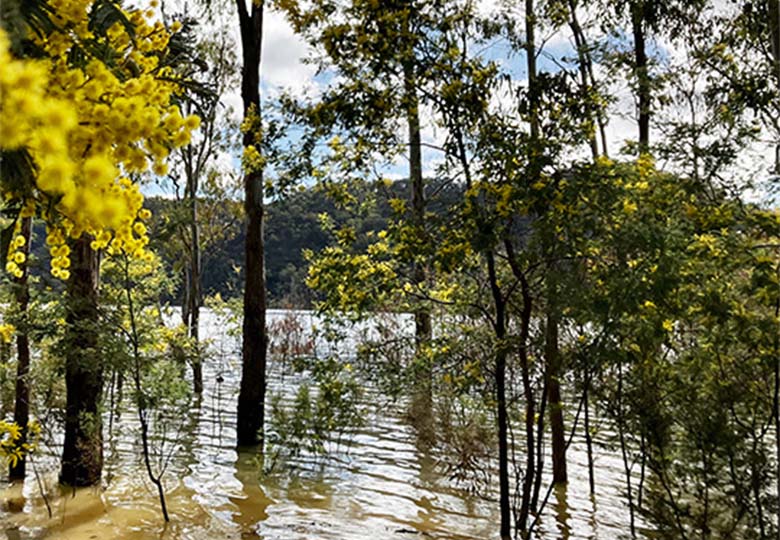Thesis Studio/02
Landscape Architecture as a Practice of Everyday Life
Akihito Hatayama

Studio Description
Setting a goal of Net Zero Emissions by 2050, the Australian government released ‘Long-Term Emissions Reduction Plan’, prioritising developments of technology. Despite its focus on renewable energy production, there is no discussion around our endless consumption.
This studio shifts attention to our Field of Behavior in ecosystem restoration through fostering our relationship with nature in everyday life. It encompasses everything we do such as how we eat, shop, commute and produce waste to more complex collective actions as industries, economy and society.
The site, Lake Eildon National Park, two-hours-drive from Melbourne, offers diverse landscapes to explore, including bushwalking, fishing and camping. The lake Eildon Masterplan identified the surrounding area for nature-based-tourism to grow economy, creating potential conflicts with conservation needs of the park. With its history of 1860s gold rush, 1950s dam construction, and their impacts on indigenous ecology and the Taungrung people’s culture, this site illustrates the challenges faced by many places in Australia.
Studio Outcomes
The studio begins with a series of explorations, including:
- Observing personal behaviour to investigate resource consumption, production, and distribution, while reflecting on cultural practices where circular production and consumption is embedded as a part of everyday life.
- Examining nature’s value beyond the dominant science-based assessment, such as carbon emissions and climate changes.
- Understanding ongoing site environmental issues and exploring alternative approaches to civil and landscape construction for land management.
With these prescribed tasks, followed by in-depth site analysis, students are challenged to conduct individual research to develop their own design propositions, deeply immersing themselves in the past, present and future of Lake Eildon National Park and its surroundings.
This studio adopts grounded approach, engaging with local land management through fieldworks (day trip and overnight stays). Additionally, it exposes students to theories and practices from Japan and other Asian countries through international guest speakers.
Studio Leader
In collaboration with Lunaworks, Queens Meadow Country House, Parks Victoria, SMEC and Yarra Ranges Council,
Akihito Hatayama is a registered landscape architect with over 15 years of experience working on a diverse range of projects. He is currently a Principal Designer at SMEC, multi-disciplinary design consultancy. Aki aspires to design environments that improve human happiness and ecological health by having a profound understanding of humans as part of nature. Through his small-scale farming practice, which incorporates Japanese natural farming, agroforestry, and a regenerative approach to water, livestock and soil management, he explores designs and everyday life that embrace the reciprocal relationship between humans and nature.
Readings & References
Department of climate change energy the environment and water (2022). Australia’s Long-Term Emissions Reduction plan
Parks Victoria Official Website_ Lake Eildon National park
Lake Eildon National Park Management Plan (1997)
Murrindindi Shire Council. (2022). Lake Eildon Masterplan (2020)
Brown, A. (2013). Just enough: Lessons in living green from traditional Japan. Tuttle Publishing.
Landscape Architecture x Change Makers project https://www.laxchangemakers.com/
Holmgren, D (2004). Permaculture in Japan: Foreign import or indigenous design?
Schedule Fridays 12:00-18:00 in MSD Room 240
Off-campus Activities LOCATION_DATE_AND_COST